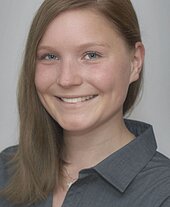Birner, Agnes
Dissertation topic: "How do children and young people make educational decisions in relation to STEM? A qualitative study of decision-making processes of children and adolescents in lower secondary school" (working title)
Contact address at the University of Würzburg:
Chair of Physics and its Didactics
Campus Hubland Nord
Emil-Hilb-Weg 22
97074 Würzburg
E-mail to Ms Birner
First supervisor: Prof. Dr Thomas Trefzger
Second supervisors:
Class in the Graduate School: "Education and Culture"
Doctorate in the Graduate School from SS 2025.
Abstract:
The qualitative study aims to uncover the complex factors that influence the decision of children and young people (KuJ) in favour of or against a STEM educational pathway, especially in the final years of lower secondary school. In order to make these decisions, which are not understood as a singular event but as a process (Rabe and Krey, 2018), more tangible for the KuJ, identity is used as a theoretical construct, since identity is also described as not static but as "unfinished and in process" (Holland et al., 1998). As the focus of the study is on the decision-making processes of KuJ in relation to STEM, the construct of STEM identity (e.g. Hazari et al. 2010; Archer et al. 2020) lends itself. In order to be able to trace the individuality and diversity of the KuJ's individual decision-making processes, guided interviews are conducted at four or three survey points in time (from February 2025 to July 2026). These include questions about experiences with STEM at school, with school and extracurricular STEM programmes and career guidance. The data collected is analysed using qualitative content analysis according to Kuckartz and Rädiker (2022). This method is suitable because it is open to deductive and inductive categorisation.
The findings allow valuable insights into how and on what basis KuJ negotiate their educational and career prospects for themselves - especially with regard to the STEM field. The results of the study can contribute to supporting young people in this negotiation process as effectively as possible through school and extracurricular measures.






